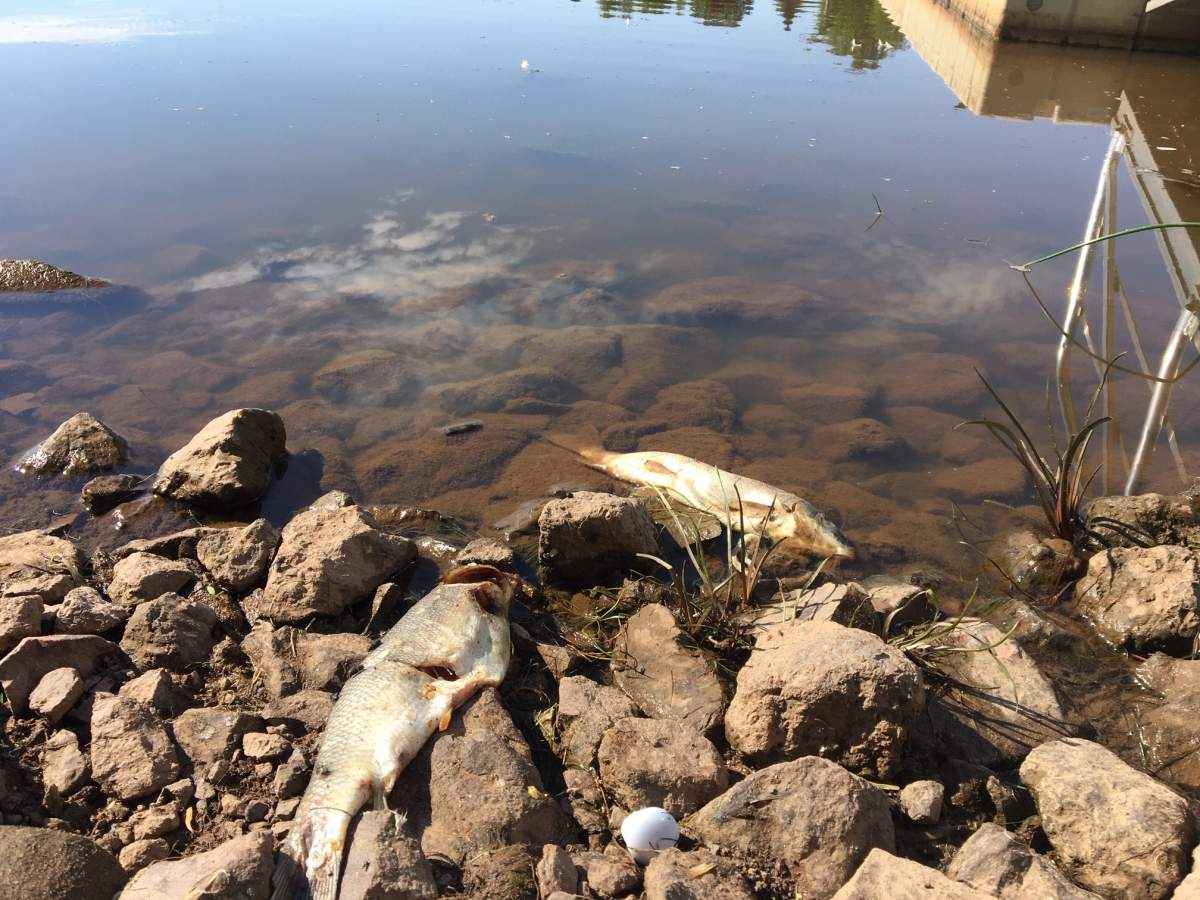Moncton residents living around Jones Lake are upset with the discovery of dozens of dead fish along the shoreline.

David Ford, who lives near the lake, says he was walking his dogs along the water Sunday night when he came across the dead and rotting fish littering the shoreline. He says he is concerned over any potential health risks the water may pose for people and pets.
“You want to know what is in the water. I mean, the ducks are here and sometimes the dogs go in the water and you want to know it is safe for them,” said Ford.
“It’s a big concern,” said area resident Elaine Gray, who has lived near the lake for more than 30 years. “It makes me wonder about the quality of the water and what is causing the deaths.”
READ MORE: Hundreds of dead fish surfacing at Wascana Lake in Regina

Get breaking National news
Gray says the city should be posting warning signs immediately and cleaning up the dead carcasses, which are causing a foul smell.
“It needs to be posted that the water is unfit for humans and pets,” she said “It smells really bad. They are just laying there rotting, and nothing is going to eat them, but it is going to cause more disease and bacteria.”
Dan Hicks, Moncton’s director of parks and recreation, says the water is tested weekly for the presence of E. coli and fecal coliform.
“I have more questions that I have answers,” said Hicks. “We really don’t have much information at this point. I am not familiar with what fish species it is or what caused it.”
WATCH: Thousands of dead starfish wash up on British beach

Hicks says the city is consulting with the Department of Environment and researchers at the University of Moncton.
The federal Department of Fisheries and Oceans (DFO) says it is aware of the incident and that there is no work in or around the lake that could have impacted fish or fish habitat.
“The fish appear to be white suckers, a very common fish that is usually not fished for food,” said Krista Petersen, a DFO spokesperson. “Generally, white suckers are found in small streams, rivers, and lakes such as Jones Lake. It is also relatively tolerant of turbid water.
“Since the Fisheries Protection provisions of the Fisheries Act are based on physical impacts, such as impacts resulting from of work or activity, the department does not plan to take any samples.”
Petersen added that issues of possible runoff or pollution in the lake should be addressed to the federal Department of Environment and Climate Change Canada.









Comments
Want to discuss? Please read our Commenting Policy first.